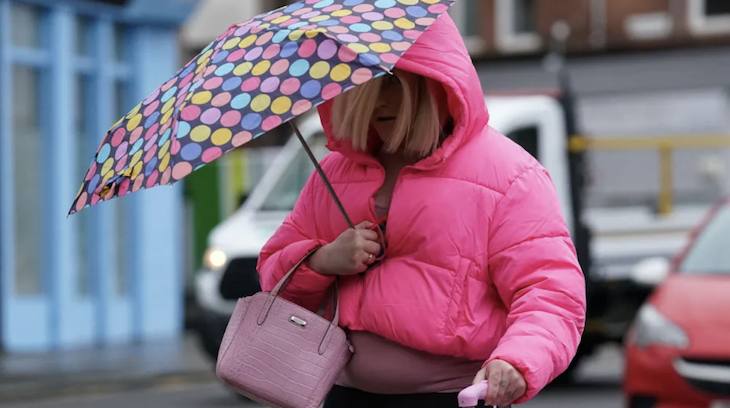The appalling debacle of the double rapist, Isla Bryson, being locked up in a women’s prison in Scotland, albeit in segregation, gave me pause for thought. As the former governor of Cornton Vale, the prison Bryson was incarcerated in, what would I have done if I was still in the job?
‘Over my dead body,’ was the response I gave when another trans-identified male inmate sought to be moved to Cornton Vale, back in 2016, when I was in charge. I was outraged: this was an individual who, over his years of offending, had committed multiple acts of serious violence, including to prison and health care staff. From prison, he stalked a 13 year-old girl and intimidated a female member of staff so completely she left her job. He was so dangerous and disruptive that, on one occasion, he couldn’t be taken into court to be sentenced for an attack on an officer. He even tried to change his name to ‘God Almighty’, so he could humiliate the staff around him whom he thought would have to address him as such.
Fortunately his transfer – and my threat – went untested, but times have changed. Although Scotland’s First Minister has now clarified that Bryson has been moved out of a female prison, this only came about after a public outcry.
During the years leading up to my retirement in 2019, I became more outspoken about my concerns over transgender inmates
What would have happened if this story had not generated so much attention? It hardly bears thinking about, because a women’s prison is no place for a violent male offender like Bryson. It’s true that he was locked up in segregation, but there is a more suitable place to hold an offender like this: as a man, Bryson could have been held for assessment in a protection unit in a men’s prison. This is, after all, where sex offenders like Bryson, and other men deemed to be vulnerable or at risk, are normally held.
Bryson however, went to Scotland’s only all-women’s prison. I don’t know the thoughts of the current governor of Cornton Vale; I don’t know what representations she made, or actions she wanted to take, but I do know that I was, and am, no braver, no more moral, no more aware of the unique vulnerability of women in prison with their long, complex histories of abuse at the hands of men than any other governor in the Scottish Prison Service. Prison governors are essentially civil servants; they are acutely aware that the real ‘bosses’ of the service are the Justice Minister and the First Minister, to whom they answer. My outrage that I can now share freely, would mean severe consequences, up to and including dismissal, if I was still in the job.
During the years leading up to my retirement in 2019, I became more outspoken about my concerns over transgender inmates; I feared that a situation like Bryson’s would arise – or, worse, that a trans-identified man would physically or sexually assault a vulnerable woman in one of our prisons. I had good reason to be concerned: I witnessed, repeatedly, the impact on women of the aggression, the sexualised behaviour, the extreme maleness of trans-identified men in their midst. Yet when I spoke to those senior to me about it, my concerns were met with a range of responses from indifference, through resigned helplessness, to agreement – but nothing that led to any useful action.
Bryson’s incarceration in a female prison, or something like it, was entirely foreseeable. It is the logical outcome of the ‘Transwomen are Women’ mantra and springs directly from the festival of misogyny and sophistry that accompanied the gender bill debates at Holyrood in the week leading up to Christmas.
Nicola Sturgeon, and all of those who voted this bill through, are now in the invidious position of having to admit that, sometimes, transwomen are not women. To some of us, none of them are women and never will be.
Will Isla Bryson’s case lead to a shift in thinking? Perhaps for some. Will it lead to a change in attitude from gender ideologists to those who express concern? I doubt it. To those who see no issue with holding trans identified men in women’s prisons, I am still a ‘transphobe’ and a ‘bigot’ for sharing my fears.
I’m not expecting an apology from anyone who has upheld this pernicious, invidious ideology any time soon. It’s probably too much to hope that some of the opposing voices, who have bravely spoken out against the tide of gender ideology, will be included, and listened to, in any review of how this sad situation came about.
But if any good can come from this incident it is surely this: that at least a significant number of those who naively chanted the ‘be kind’ mantra have started to see that this is about much more than kindness to trans-identified people. It’s about reality versus fantasy and, above all, about recognising that sex is immutable and men are always men. Nowhere is that truth more clearly evidenced than when, whatever their motivation, they talk their way into women’s prisons.






Comments